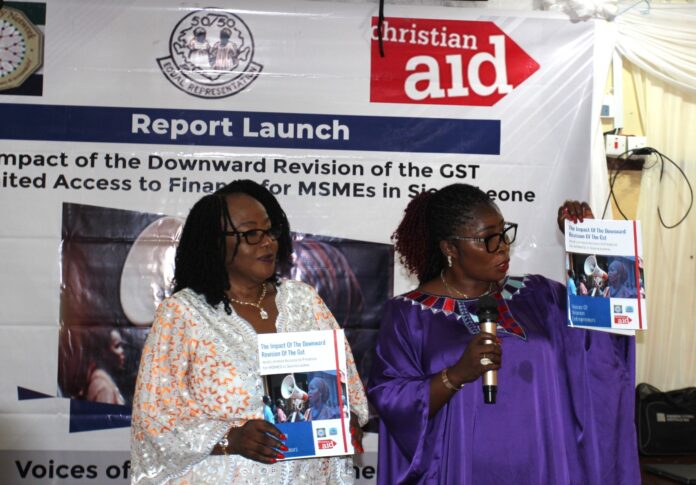
By Lawrence Williams
A recent study by Budget Advocacy Network (BAN) uncovers significant challenges faced by micro, small, and medium enterprises (MSMEs) in Sierra Leone. The reduction on Goods and Services Tax (GST) threshold from $70,000 to $6,700, coupled with the lack of adequate government policies and regulations, including barriers to financing, pose severe obstacles to business growth. Notably, 73% of women-led businesses are disproportionately affected.
The report, titled “The Impact of the Downward Revision of the GST and Limited Access to Finance for MSMEs in Sierra Leone,” highlights borrowing constraints and gender biases as major impediments to MSMEs development. Furthermore, the under-representation of informal sector women in major policy discussions around taxation has reportedly exacerbated their economic marginalization.
Sierra Leone’s economy consists of 165,514 business establishments, with 70% being micro and informal enterprises, and 91% of all businesses operating as sole proprietorship, according to Statistics Sierra Leone.
Based on BAN’s report, small-scale businesses and female entrepreneurs have expressed concerns regarding the disproportionate tax exemptions granted to large corporations in the mining sector while they bear the brunt of tax burdens.
“The government is giving GST exemptions to the mining sector, which is one area that [they] should utilise to maximise revenue collection instead of overburdening MSMEs,” it said.
Further, the report highlights that numerous small businesses have experienced a decline in sales after implementing the electronic cash register (ECR).
“Many small businesses forced to use the ECR reported a reduction in sales as customers feel their products are more expensive than other retailers,” the report stated.
The recommendations called for implementing gender-responsive budgeting and boosting the participation of informal sector female entrepreneurs in decision-making processes. Additionally, they emphasised the need for facilitating access to financing for MSMEs, enforcement of the Citizens Trade Act to safeguard local businesses from unfair competition with foreign-owned enterprises, and enhancing public awareness and education regarding taxation matters.


